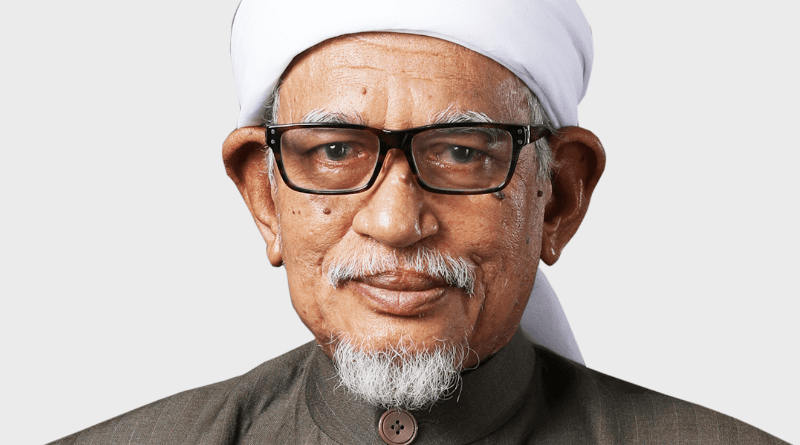Malaysia Must Clarify Whether Envoy’s ‘Promise’ To Taliban Had Government OK – Analysis
By BenarNews
By Ray Sherman and Suganya Lingan
A controversy over Malaysia’s envoy to the Middle East purportedly promising aid to the Taliban government in Afghanistan refuses to die down.
Abdul Hadi Awang, the envoy who also leads the Malaysian Islamic Party (PAS), said Tuesday through his representative that his meeting with a senior Taliban official in Doha last week was just a “dialogue.” He indicated that any discussion about aid was akin to Malaysia’s donation to the U.N. for humanitarian efforts in Afghanistan.
But political analysts and opposition leaders say the government needs to break its silence and state whether the cabinet approved such a promise to the strife-torn nation, given that Muslim-majority Malaysia has not recognized the Taliban government. The Taliban took power in Kabul last August after toppling a Western-backed administration.
“If the meeting happened without the official endorsement of the [Malaysian] government, then Hadi, as an appointed envoy, has exceeded his powers as an envoy,” Mazlan Ali, a senior lecturer with Universiti Teknologi Malaysia, told BenarNews.
“This is especially the case when the Taliban-led Afghan government is yet to be officially recognized by Putrajaya. A clear explanation [about what actually transpired] should be given by the government and the Foreign Ministry.”
Abdul Hadi met with the Taliban’s permanent representative to the United Nations, Mohammed Suhail Shaheen, on Feb. 3. On the same day, the latter posted a message on Twitter about Abdul Hadi’s discussion with him.
“He promised [that] Malaysia will do what it can to assist the Afghan people in this critical time,” Shaheen said.
The Taliban ambassador to the U.N. was referring to an acute humanitarian crisis in Afghanistan. According to a recent statement from the World Food Program, a United Nations agency, 23 million Afghans are going hungry and 8.7 million are at the risk of starvation.
Meanwhile, the Malaysian government has not issued any statement about Abdul Hadi’s meeting last week.
On Tuesday, BenarNews contacted officials at the Foreign Ministry but did not hear back from them immediately. However last month, Foreign Minister Saifuddin Abdullah said that Malaysia was not rushing to recognize Afghanistan under the Taliban leadership.
“We would prefer the recognition through certain international platforms, say the [Organization of Islamic Cooperation]. That is our stand for now,” Saifuddin told reporters then.
Another analyst, James Chin, with the University of Tasmania, noted that Abdul Hadi’s PAS party had consistently voiced supported for the Taliban since the political movement was formed.
Last August, Abdul Hadi’s son, Muhammad Khalil, who is chairman of PAS’s international affairs and external relations committee, tweeted his congratulations to the Taliban when the United States and other members of an international coalition withdrew the last of their troops from Afghanistan.
“It’s obvious the cabinet hasn’t made a decision about the Taliban [administration] so [Abdul] Hadi Awang is jumping the gun by offering aid and an indirect form of recognition by meeting the Taliban,” Chin told BenarNews.
“He’s in a position to offer aid in his personal capacity, or [from] PAS, as a party. But if you read the reports carefully, it seems like he offered aid on behalf of the Malaysian government. That, I think, is quite unusual.”
Meanwhile, Abdul Hadi’s political secretary, Syahir Sulaiman, defended the meeting with the Taliban’s Shaheen and claimed that that it was arranged by Qatar’s Ministry of Foreign Affairs upon Malaysia’s request.
“The session with [the] Afghan/Taliban rep[resentative] in Doha was a ‘dialogue’ session, arranged by [Ministry of Foreign Affairs] Qatar upon our request,” Syahir said in statement on Tuesday, although BenarNews could not confirm this claim.
“[The] whole world is engaging Afghan/Taliban through multiple channels of ‘dialogue,’ including the OIC [Organization of Islamic Cooperation], the U.N., the US, and China,” he added.
As for whether meeting the Taliban official constituted recognition of the Taliban administration, Syahir said Abdul Hadi reiterated the Malaysian government’s position.
“Regarding recognition …the special envoy conveyed Malaysia’s official stance that remains the same as stated by [the foreign minister.]”
“As the EU had said ‘dialogue does not imply recognition’ but is part of our operational engagement,” Syahir wrote on his Facebook page.
Nisha David in Kuala Lumpur contributed to this report.

